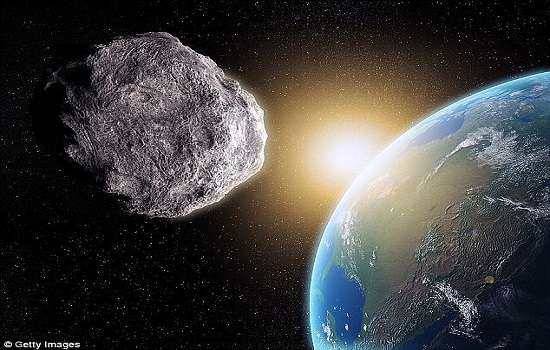
An asteroid the size of the Gibraltar rock will be the largest asteroid to come this close to Earth since 2004.
On Wednesday, the object is expected to pass close to our planet, zooming by at a distance of just over a million miles (1.8 million km), but with no chance of impact, according to NASA scientists.
Smaller asteroids regularly come closer than this to our planet, but 2014 J025, discovered in May 2014, will be the largest asteroid to come this close to the planet since 2004, flying by at only about 4.6 times the distance from the Earth to the Moon, 1.1 million miles (1.8 million km).
“We know the time that the object is going to be closest within seconds, and the distance is known within hundreds of kilometres (miles),” Davide Farnocchia, a mathematician at NASA’s Near-Earth Object program, told on Tuesday.
Having several years of data on the asteroid’s trajectory gives scientists the ability to predict its path very confidently, he added.
The asteroid, estimated to be between one-quarter and three-quarters of a mile (600-1,400 meters) wide and twice as reflective as the Moon, won’t be visible to the naked eye, but sky watchers should be able to view it with home telescopes for one or two nights starting on Wednesday.
The approach of J025 will be the asteroid’s closest for at least the next 500 years. In 2004, the 3.1-mile (5-km) wide asteroid Toutatis passed about four lunar distances, or just under a million miles (1.6 million km) from Earth.
Amateur astronomers may be watching J025’s journey, but Mr Farnocchia said he and his colleagues have moved on to tracking even closer encounters, such as asteroid 1999 AN10, a half-mile (800-meter) wide rock predicted to pass only 236,000 miles (380,000 km) from Earth, or slightly less than the distance to the Moon, in 2027.

Post Your Comments